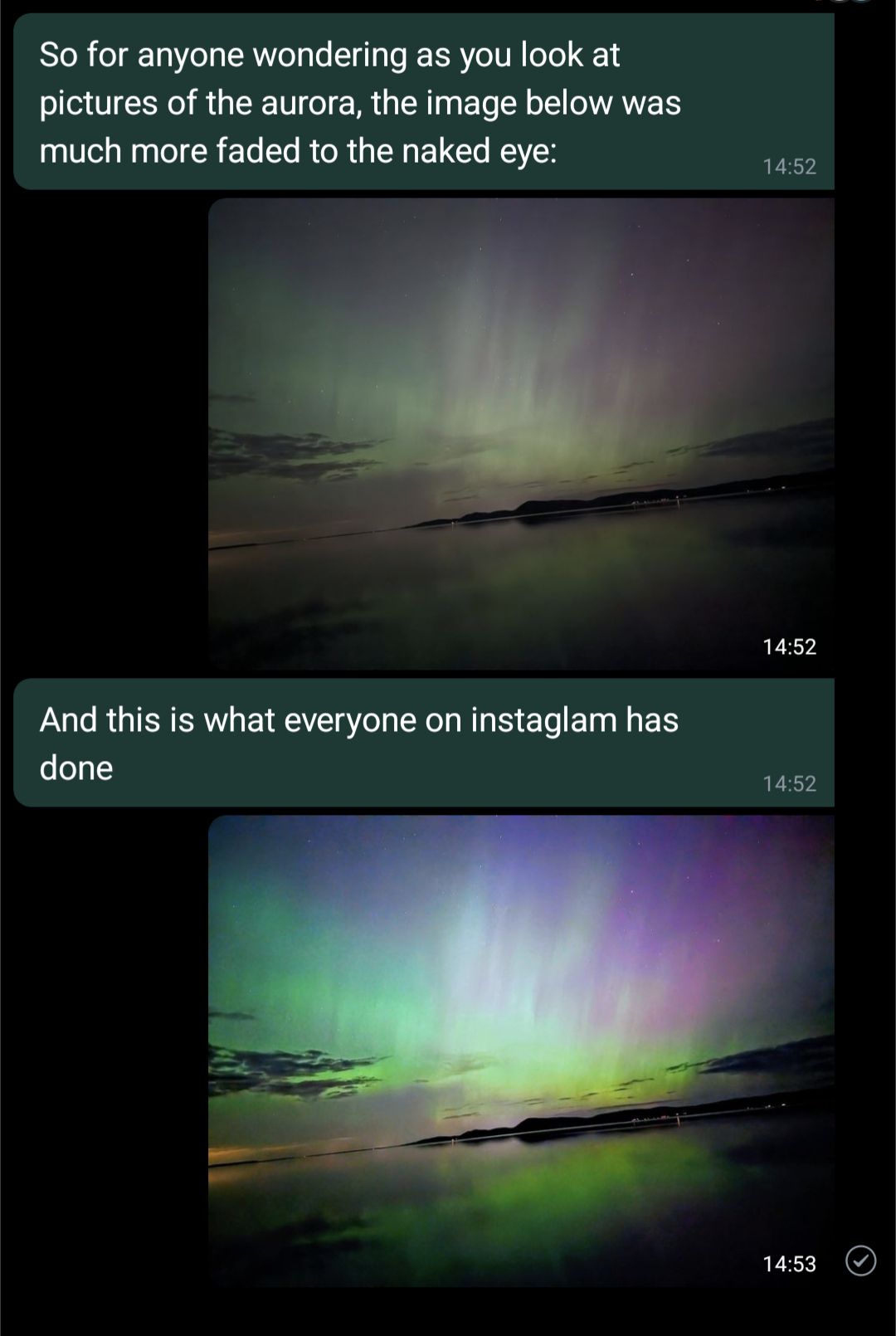this post was submitted on 12 May 2024
576 points (96.8% liked)
pics
19127 readers
122 users here now
Rules:
1.. Please mark original photos with [OC] in the title if you're the photographer
2..Pictures containing a politician from any country or planet are prohibited, this is a community voted on rule.
3.. Image must be a photograph, no AI or digital art.
4.. No NSFW/Cosplay/Spam/Trolling images.
5.. Be civil. No racism or bigotry.
Photo of the Week Rule(s):
1.. On Fridays, the most upvoted original, marked [OC], photo posted between Friday and Thursday will be the next week's banner and featured photo.
2.. The weekly photos will be saved for an end of the year run off.
Instance-wide rules always apply. https://mastodon.world/about
founded 1 year ago
MODERATORS
you are viewing a single comment's thread
view the rest of the comments
view the rest of the comments


To be fair you don't really have to use filters for this. Cameras are much better at capturing the colors of the aurora while in person it looks like a faint white glow in the sky. Possibly some white-balance thing where it way overcompensate.
Cameras also need relatively long exposures to capture those so it'll also appear much brighter and vivid than we see with our own eyes, possibly because of the low light conditions we use our cones more than the rods.
It was actually really crazy last night when I was out. With my eyes I could just barely make out the white lines in the sky. Long exposure on my phone (~5 seconds) and it looks TOTALLY different. I would have never guessed there was all those purples and reds there. If my brother hadn't texted me and said pull out your phone and take a picture I would have gone back inside and just shrugged.
I'm in a pretty dark sky area in Australia, was able to make out the colours and waves / lines with the naked eye at its peak. Camera showed lush, bright reds even with about 10-15 seconds of exposure.
It may just be the light pollution where I am. I'm not too far from a pretty large city. I'm thinking that washed out a lot of what I could see with the naked eye.
Edit to post above to cover this. Thank you.